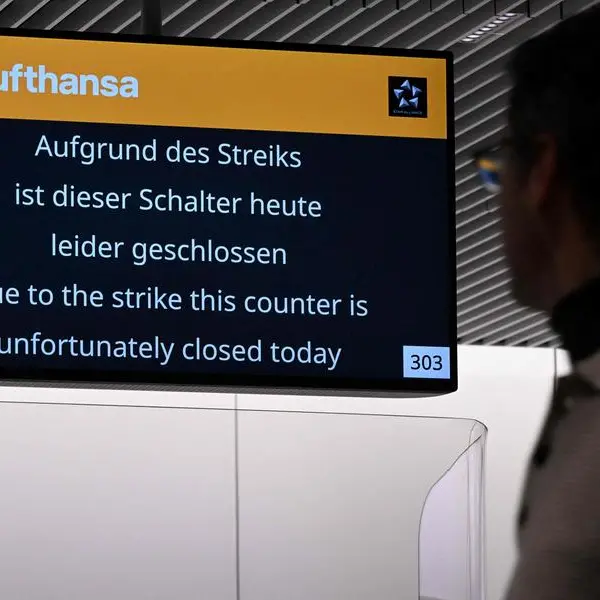PHOTO
The fintech landscape in the Middle East is both competitive and growing, with several cities bidding to become the region’s fintech hub and the number of funders looking to back start-ups growing.
A study presented by the Dubai International Financial Centre (DIFC) and management consultancy firm Accenture in November last year found that the number of fintech companies in the Middle East had grown from none in 2010 to 30 by 2017, with a total of $140 million raised in venture capital over the eight-year period. However, total investment was predicted to top $149 million in 2018 alone, and to reach $2.28 billion per year in 2022, by which time the stock of fintech firms is expected to reach 465, up from a forecast of 55 last year.
The paper pointed out, however, that the bulk of investment made in the wider Middle East and Africa region so far has mainly gone to companies offering either digital payments, money transfer or (mainly SME) lending.
This is understandable, given the opportunities available to firms who can capture a sizable share of markets that are potentially huge – in Africa, 60 percent of the population is unbanked but 79 percent have a mobile phone and by 2022 53 percent are expected to have a smartphone. Yet Siddharth Bhandari, co-founder and chief executive officer of Dubai-based NewBridge Fintech Solutions (NewBridge), felt that there were better opportunities to be had by serving a totally different part of the market.
Bhandari, who was a career banker with more than 25 years’ of experience with lenders including Société Générale and Emirates NBD, said that Middle East fintechs serving banks had either focussed on risk (onboarding clients, eKYC etc), lending or on wealth management.
“We thought that this was a fairly crowded field, with great solutions globally looking to cater to that market,” he told Zawya during an interview at DIFC’s Fintech Hive earlier this month.
After doing his own research through meetings with bank CEOs, CFOs and bank treasurers to “to find their pain points”, he set up NewBridge Fintech Solutions (NewBridge) in March 2017 to instead focus on wholesale funding.
The product that NewBridge has established, Deposit Book, is an online marketplace that seeks to match banks’ needs for short-to-medium term funding with a global demand from investors for higher yield in an environment of persistently low interest rates.
“We wanted to do something which was quite different, so we focussed on the liabilities side of bank balance sheets - how they raise funding, do they still rely on old branch networks, what are the costs of raising those funds?” Bhandari said.
Insider knowledge
Bhandari runs NewBridge alongside chief operating officer Vikram Kelkar, who is a former regional head of client management at HSBC.
“Unlike a lot of start-ups, we are bankers who basically have seen the other side of the industry and then tried to disrupt it, rather than a lot of talented young people (coming from the outside). We have the capability or experience of really knowing.... how we can make things more efficient.”
Deposit Book looks to target a variety of global debt investors – from Scandinavian pension funds to offshore Chinese funds and Saudi family offices, for example – by offering them access to higher, off-market rates set by banks to meet immediate funding requirements.
For instance, if a bank in Bahrain has a $100 million shortfall for which it requires one-year funding to cover a liability it has incurred, it can raise this via Deposit Book from private investors without having to wait for customer deposits to increase, or tapping debt capital markets.
Deposit Book then earns a small margin from banks on the loans arranged.
Bhandari said a bank might pay “40-50 basis points”, or 0.4-0.5 percent, more than the typical lending rate for institutions with an identical credit rating, and Deposit Book will take 5-10 basis points (0.05-0.1 percent) as an arrangement fee, which banks can factor into their borrowing rate. The size of the company’s fee depends on the size and quality of the bank, he added.
Bhandari said it is looking to take advantage of an “open banking revolution” that frees customers from one, or a handful, of banking relationships.
The product is still in its early stages, but its potential has been recognised following a pre-Series A funding announcement by BRS Ventures Investment – an investment company owned by Finablr founder and co-chairman Dr B.R. Shetty.
It currently has a pipeline of eight banks – four of whom have already signed agreements, with the remaining four currently going through a sign-off process for compliance purposes. Some of these are regional banks, he said, but others are global.
“Our 2019 target is to get 15 banks by the end of the year,” Bhandari said. “Once the banks are there, then we can go to the clients in a very aggressive way, because it's a chicken and egg – a client will want to see a variety of rates and choices.”
The firm is not taking on investors directly, but has signed deals with Bank of Singapore in Asia and Meteor Asset Management in London who handle the necessary onboarding.
Loan ticket sizes generally start from $10 million, with the shortest tenor being one month, given that transactions could take time to route through custodian bank accounts. The more banks that are added to Deposit Book, the more instruments will become available, with different tenors, currencies and debt instruments on offer, from short-term paper to fixed deposits, certificates of deposits and EMTNs (Euro Medium Term Notes), which are funding instruments with a duration of up to five years.
Bhandari said that in the Gulf Cooperation Council, banks sometimes have “a lot of unbudgeted or unplanned allocation to government infrastructure projects”, meaning they require short-term funding.
“Suddenly, you will see that a big project comes through and $3bln of liabilities are needed to match the requirements, and then the banks come to a platform like ours and they run a campaign within their own team to raise those funds.”
NewBridge’s immediate priorities are attracting new banks and clients to Deposit Book, but it also has longer term goals. From next year, it wants to spread its network of borrowers, allowing corporate entities to issue commercial paper, and to allow private debt funds onto the platform.
The more lenders that there are on the platform, the higher the chance there is that one of them will eventually default on an obligation. Bhandari said it is attempting to avoid this in the short term by only allowing issuers of investment-grade debt onto the platform, but he also stressed that this is a platform for sophisticated investors.
Buyer beware
“We do not do any advisory business - that's very important. They (the clients) have to do full due diligence on the banks they are taking exposure from.”
He said that Deposit Book also plans to tie up with ratings agencies to allow clients to do some research on debt issuers.
“But at the end of the day, our terms and conditions are very clear that you are making a decision and the credit risk remains with you.”
The company’s other main goal is developing white label sites using Deposit Book technology that banks can use under their own brand to offer a similar rate-matching service to their own clients. He said that while researching its product, some bank heads complained of losing longstanding client because a competitor offered a higher deposit rate. If a bank can offer a client higher rates from a range of competitor banks, but keep them within their own ecosystem (and make a few basis points on arranging a loan) many would be happy to do so, Bhandari argued.
“The only unicorn in this field is a (German) company called Deposit Solutions. They started as a B2C business but then they realised the bank-to-bank business is becoming bigger,” he said.
Prior to the BRS Ventures’ investment, the bank had been funded by its founders, with some additional money invested by a private family office. Bhandari said that it has been careful with its cash – all of its software development has been done by a team in Ahmedabad in Gujarat, India, and the company’s chief technology officer is based in Mumbai.
“Initially, we had a CTO based out of Dubai, but we realised we needed somebody on the ground to be able to really get his hands dirty and roll up his sleeves. Once we grow we can have a strategic overseer, but right now everybody is pretty much hands on deck,” he said.
Similarly, with business development, it is looking to grow via referrals and arrangements with former senior bankers who will earn a percentage of Deposit Book’s fees on loans arranged by clients they introduce, as opposed to employing sales staff.
“Merrill Lynch used to work on that 'eat what you kill' strategy, so I said let's replicate it,” he said.
“Obviously, we'll have to have some in-house guys but as a fintech we will be very constrained because for the next 18 months there will be a cash burn before we break even.”
A report by Magnitt on venture funding in the MENA region published in January found that fintech firms attracted the most backing in 2018, in terms of the number of deals. Of the 366 deals arranged in 17 countries surveyed, 12 percent involved fintech firms, compared to 11 percent for ecommerce companies and 8 percent for transport and delivery firms.
(Reporting by Michael Fahy; Editing by Mily Chakrabarty)
(michael.fahy@refinitiv.com)
Our Standards: The Thomson Reuters Trust Principles
Disclaimer: This article is provided for informational purposes only. The content does not provide tax, legal or investment advice or opinion regarding the suitability, value or profitability of any particular security, portfolio or investment strategy. Read our full disclaimer policy here.
© ZAWYA 2019












